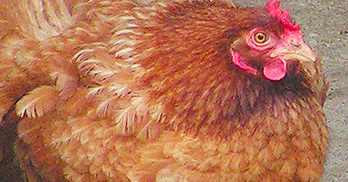
how to keep hens - easy facts
Below are some of the questions often asked by people new to keeping chickens. I have certainly had to find these out myself. You can keep chickens for the eggs, for food or as pets. Although I like the eggs, I find that having chickens running around the garden are just fun to watch.
I have gathered some pretty good egg recipes from my few years of chicken keeping which I will publish later. In the mean time . . . here are those chicken facts.
I have gathered some pretty good egg recipes from my few years of chicken keeping which I will publish later. In the mean time . . . here are those chicken facts.
What is a pullet?
A female fowl, that is less than one year old.
How long do hens live for?
Normally around six years, but some can live over ten years.
How do I tell if my hens are broody?
Protective of eggs and will not leave the nest box. Hot, ruffled feathers and will peck and cluck at you when picking up the eggs. (I can vouch for this one).
How much should my hens eat in a day?
Basically 125 gms. (4 oz.) per day.
What should I feed my hens?
Layers Pellets or mash It is a “complete” balanced diet, including calcium/grit.
What should I not feed my hens?
Chocolate, meat, raw potato peelings, (mouldy scraps) anything containing salt or sugar.
Can I feed my hens leftovers?
Yes, as long as it contains no meat or excess salt and you are not selling eggs.
What is true free range?
The hens must have continuous access to open air runs. Spacing 100 birds to one acre.
What causes blood spots in my hens eggs?
Occasionally tiny spot released by the ovarian follicle. Sometimes pullets, but more likely older hens. Bright spot signifies fresh egg, as the spot becomes paler as egg ages.
What causes a double yolk?
A “mistake” in the reproductive system. More than one yolk being released at one time. Normally as an egg is laid, the cycle of the next yolk travelling down the ovary begins again. In pullets this occasionally goes wrong, but it can also be a hereditary trait.
Why are my hens laying eggs with soft shells?
This is likely to occur with young birds coming into lay for the first time. When a pullet reaches 16 weeks it must graduate to layers feed. For at least three months, no extra grit, or “treats” must be given.
My hens eggs are not perfectly smooth but bumpy, why?
Bumpy and wrinkled eggs are caused usually by hens as they get older and coming to end of lay. The cause is likely to be poor muscle tone.
Do hens need a cockerel to lay eggs?
No. A cockerel is only required if you need fertile eggs to hatch,`
you might also like 10 weird facts about chickens?
or the big world blog